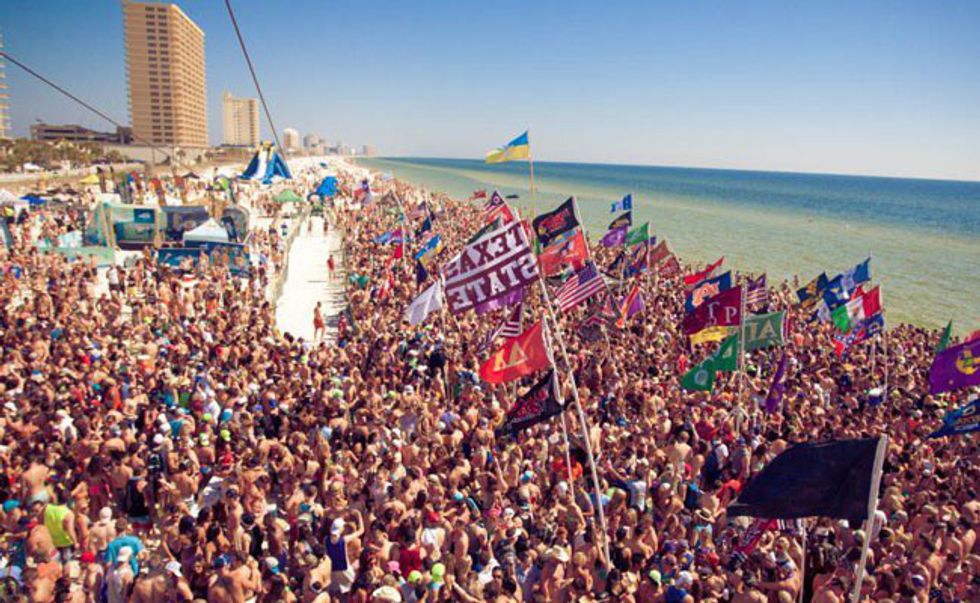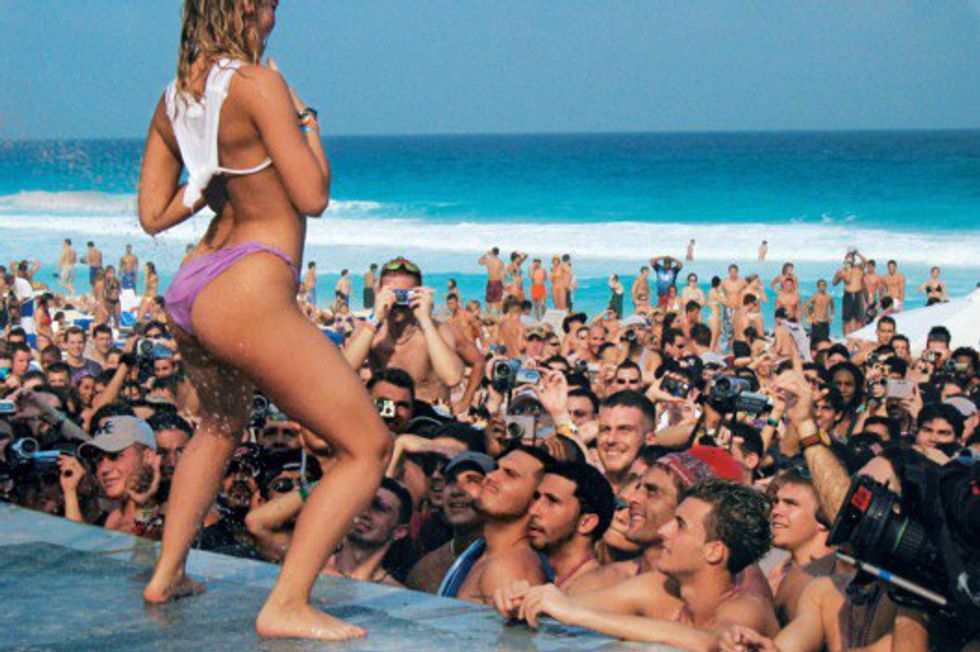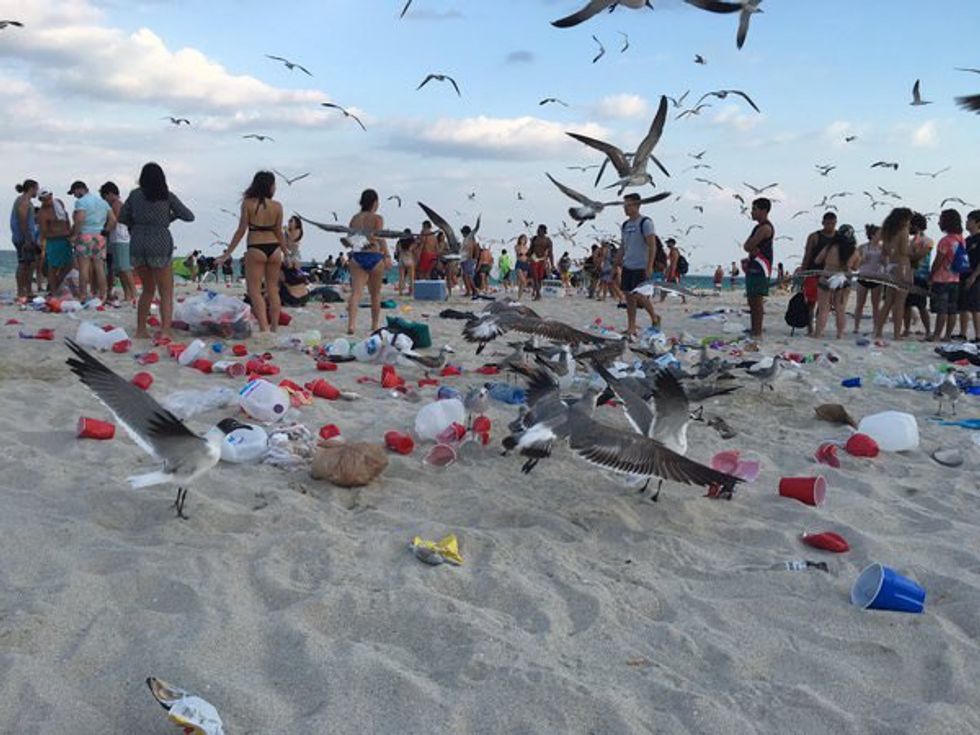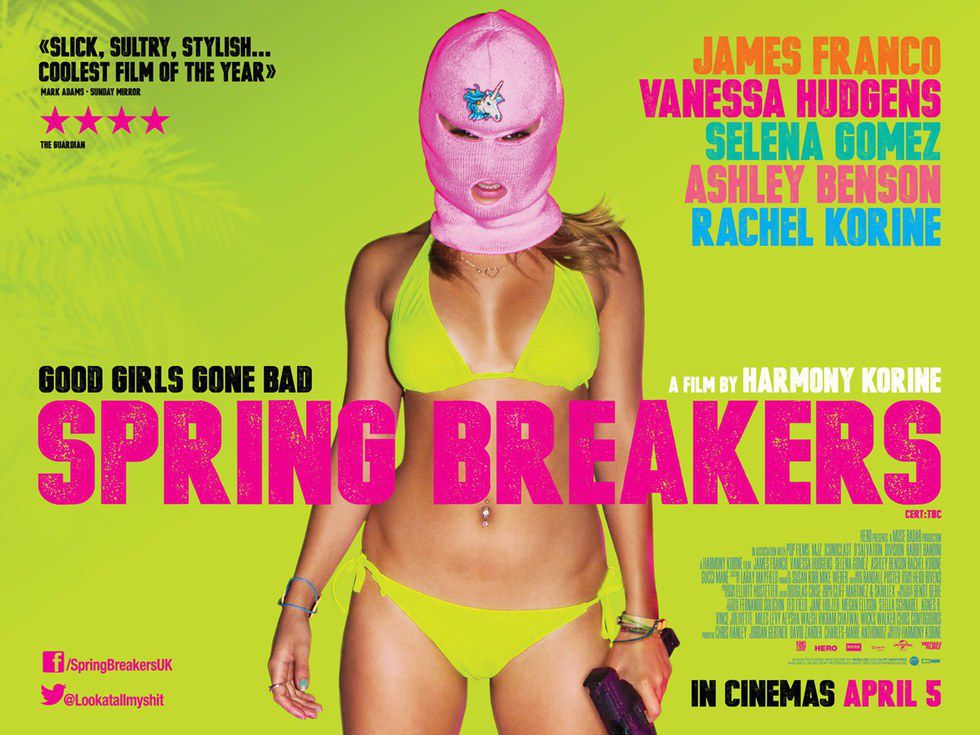It's 12pm and the scorching Mexican sun reflects off the sand and blue-tinted mirrored sunglasses donned by an inebriated, 5'3 blonde girl with bikinis printed with the American flag. Heather*, 19 and a marketing student at the University of Massachusetts at Amherst, describes Cancún as "literally heaven on Earth" where she could "do whatever and no one would care". Most tourists would nod along in agreement whilst sipping frozen margaritas and gawking at mariachi bands, yet what sets your run-of-the-mill vacationers and spring breakers is ultimately, their clashing definitions of a good time. Mind you, I'm not here to dictate how anyone should spend their free time and money, but it is undeniable that spring break culture within college campuses has very toxic side effects and brings nothing besides alcohol poisoning and blackouts to the table. Surely young students might believe that chugging beers and using their real IDs to get into clubs for the first time in their lives is the definition of the ultimate good time - but the notion of spring break culture is in itself is an unrealistically idealized idea of a typical American college rite-of-passage, not to mention dangerous and potentially life-threatening. It's not just the repercussions that come with that whole idea that only perpetuate negative and disorderly behavior, but where this behavior comes from is just as terrible.
About a year ago, on the first week of March, I found myself on a jam-packed, non-stop flight from New York to Cancún en route to a nice spring break vacation with an old childhood friend. While we were looking for a nice Mexican-style revival of our times partying and having fun under the Brazilian tropical sun, the fairly large group of fellow college students behind me at the boarding line were looking for the same thing - yet I later came to learn how our ideas of "fun" and "partying" were not exactly homologous. Upon arrival to the all-inclusive hotel, the group from the plane, comprised of about 30 people (with an uneven ratio of women to men, naturally) were already at check-in, donned with apparel that read "Spring Break 2k15" and large complimentary beer mugs, and discussing drinking at the beach as soon as they settled into their respective rooms. Nothing wrong there, for my friend and I were essentially planning the same, however, it was the drunk and disorderly actions that followed that indicated how, despite being in the same place at the same time and doing virtually the same things, our notions of how to party were the antithesis of each other. While its true that alcohol in itself tends to turn even the quietest of us into public performers, the spring break groups around us were already inebriated on the ether of youth and ready to "go hard or go home."
What caught my attention the most was the clear focus on drinking and taking massive amounts of drugs without any sort of consideration for a limit, the fact that these young adults were looking to alter their states of mind to such an extreme extent that the ultimate goal wasn't to "have fun" but to follow the guidelines of Spring Break and "just get f*cked up." That's where my issue with spring break culture came to light, where I noticed that the idea of traveling to some warm beach city was less about enjoying the sun during the day and going out at night and more about getting as inebriated as possible and, at the end of the week, boast about who had less recollection of what happened.
There were day parties, booze cruises, raves, and anything in between - everything open bar, of course - and college students went crazy over it all, and not to say I didn't either, but the general vibe and energy were completely off. People would walk around in pretty much uniform clothing; the guys with colorful board shorts and some accessory printed with the American flag and the girls with bikinis and heels, all whilst walking around with a drink on one hand and a phone on the other, documenting all the dancing and grinding while crazy yelling and music boomed in the back. It occurred to me at the point that most of those people weren't there to actively enjoy what was in front of them, but rather to showcase it to their friends and to follow a trend - merely because "that's what you do on spring break". Not to mention that these same partiers who aren't conscious of the repercussions of their actions, eventually trash beaches the same way they would in a privately owned club, be it because they believe there will be someone there to clean up after them or simply because they do not care about anything beyond partying and having fun.
In Harmony Korine's 2013 "Spring Breakers," four young college girls find themselves stranded on campus as their fellow class mates leave for their highly anticipated break, feeling left behind with no money and sulking as though missing out of all the fun is perhaps the most unacceptable scenario in the world. Determined to change that and motivated by purely superficial desires, they then resort to the most obvious alternative; armed robbery. Surely the director's portrayal of spring break's staples of binge-drinking, wild, drug infused partying and crazed teenage hormones seems unrealistic and just downright too obscene, yet it is the reality of the situation that drives people into a borderline nihilistic search for happiness at the bottom of a yard-long, neon-colored plastic cup. Needless to say, the four women in the movie, completely enthralled by their psychotic spring-break bender, evidently end up facing the consequences of their unlawful actions, which doesn't last for too long as partying is the primary concern and everyone just wants "to have fun". Korine himself declared that “[he] never thought of it as uncommon, but then [he] started looking at the imagery – hyper-violent, hyper-sexual imagery with all the childlike pop culture indicators around them: the nail polish, the swimsuits, the puke, the donuts. It was the hidden, coded language [he] got interested in. It says everything and nothing", which is when he decided to bring this side of the truth of what spring break has become about to the big screen.
I reiterate my point when I say this is not how every spring break experience is, but rather that its the deeply rooted and dark motivations that lead people into these irresponsible and short-sighted behaviors. In a reality where "basically you come down, hang out for a week, get wasted", as one spring breaker in Cancún eloquently put it, the glamorization of binge-drinking, reckless and unprotected sexual experiences and imprudent drug use has its fatal consequences. Be it falling from a balcony in Panama City, careless drunk driving resulting in a 9.1% increase in death tolls or a few tequila shots too many that lead to fatal alcohol poisoning, it is undeniable that spring break culture is not a healthy mentality to propagate. However, that doesn't mean that spring break cannot be enjoyed and that alcohol-fueled parties shouldn't exist, but rather that people need to realize that there are limits to it and that going over those boundaries can quickly turn a week of fun and entertainment into a real-life nightmare.












 The minimum wage is not a living wage.
StableDiffusion
The minimum wage is not a living wage.
StableDiffusion
 influential nations
StableDiffusion
influential nations
StableDiffusion











